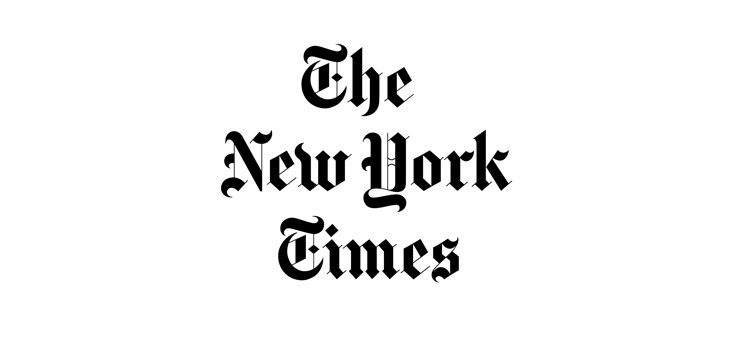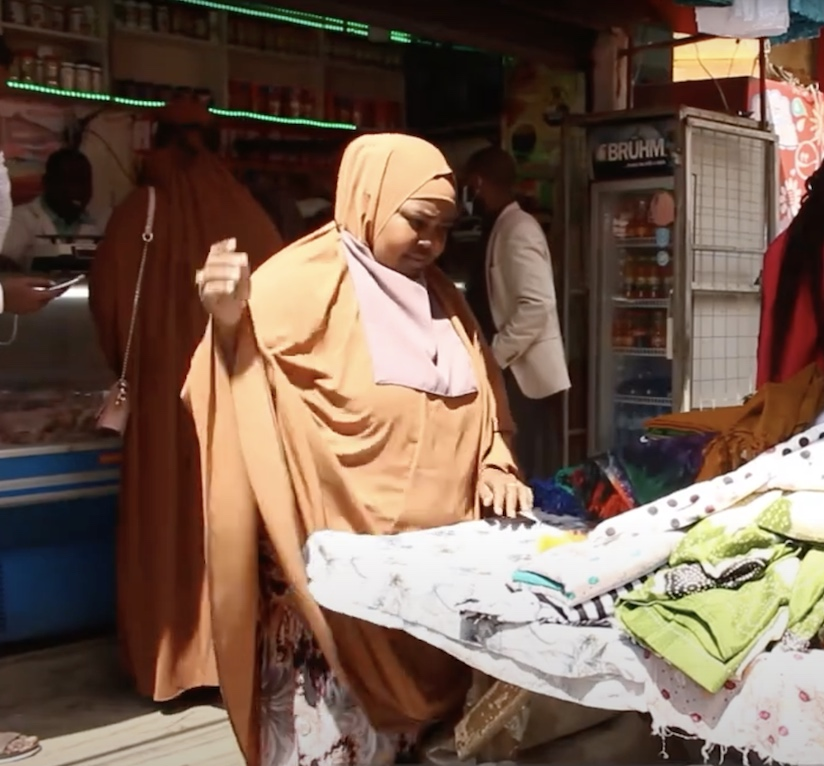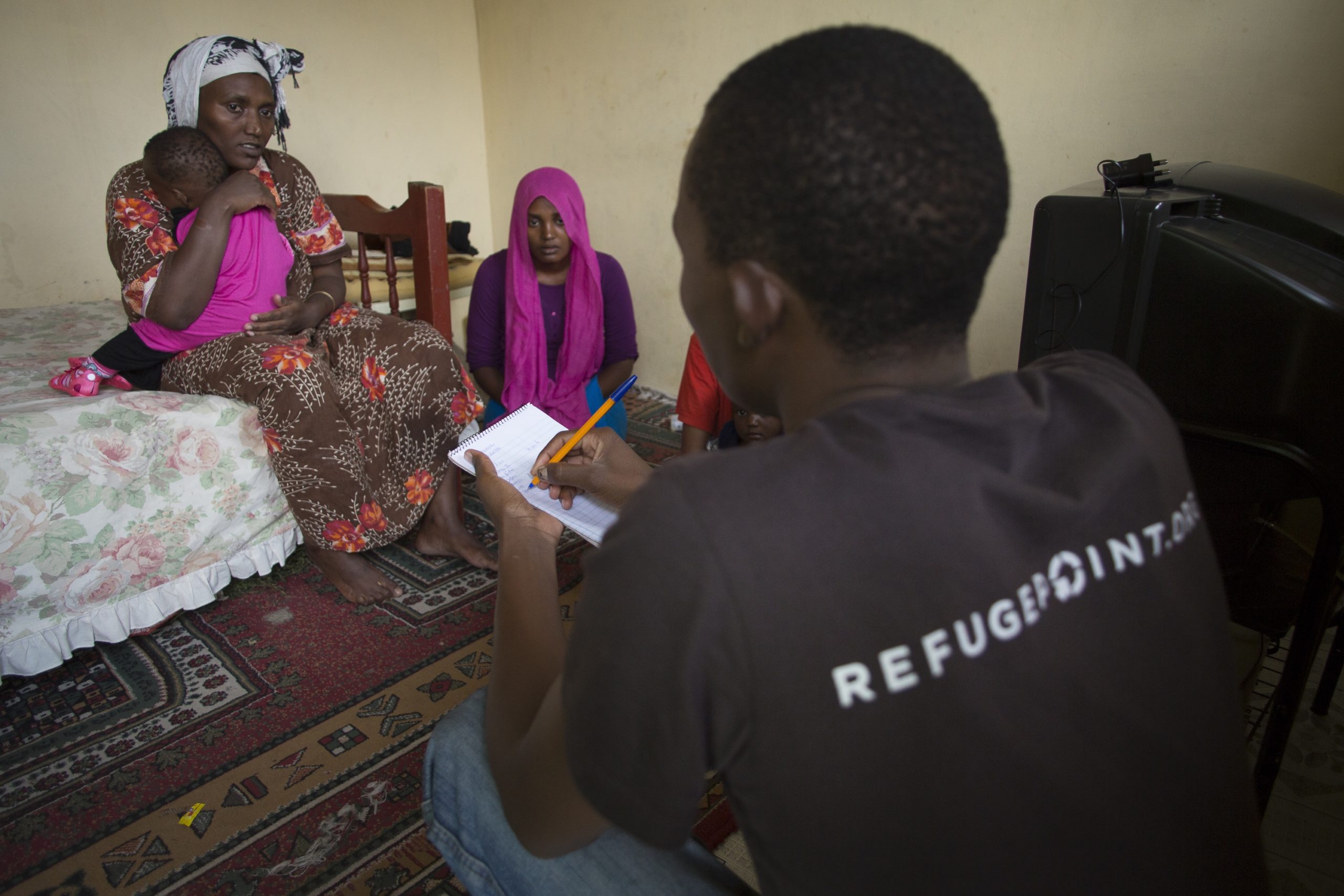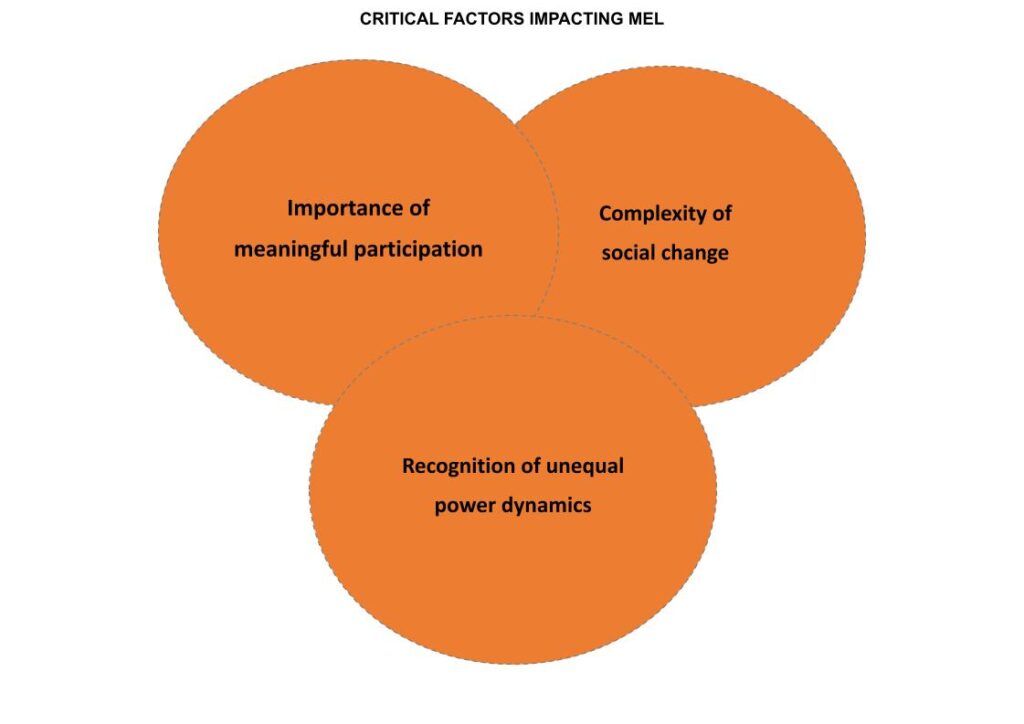
Like any story, our casework database began with an idea. In 2007, RefugePoint was two years old and only supporting urban refugees in Nairobi, Kenya. Part of that program included referring refugees who we worked with for resettlement to a safe country, and we began to wonder if we could provide support on resettlement cases outside of Nairobi. What RefugePoint now calls the UNHCR Collaboration Project started when we sent a pair of Resettlement Experts to Dadaab, a refugee camp about 300 miles northeast of Nairobi, to interview refugees and submit their cases for resettlement. Experts are RefugePoint employees who work with the United Nations High Commissioner for Refugees (UNHCR) to provide support in refugee resettlement, child protection, family reunification, or building other pathways. Fourteen years later, RefugePoint has sent Experts to 49 different countries to support more than 100,000 refugees to access resettlement and other pathways to safety.
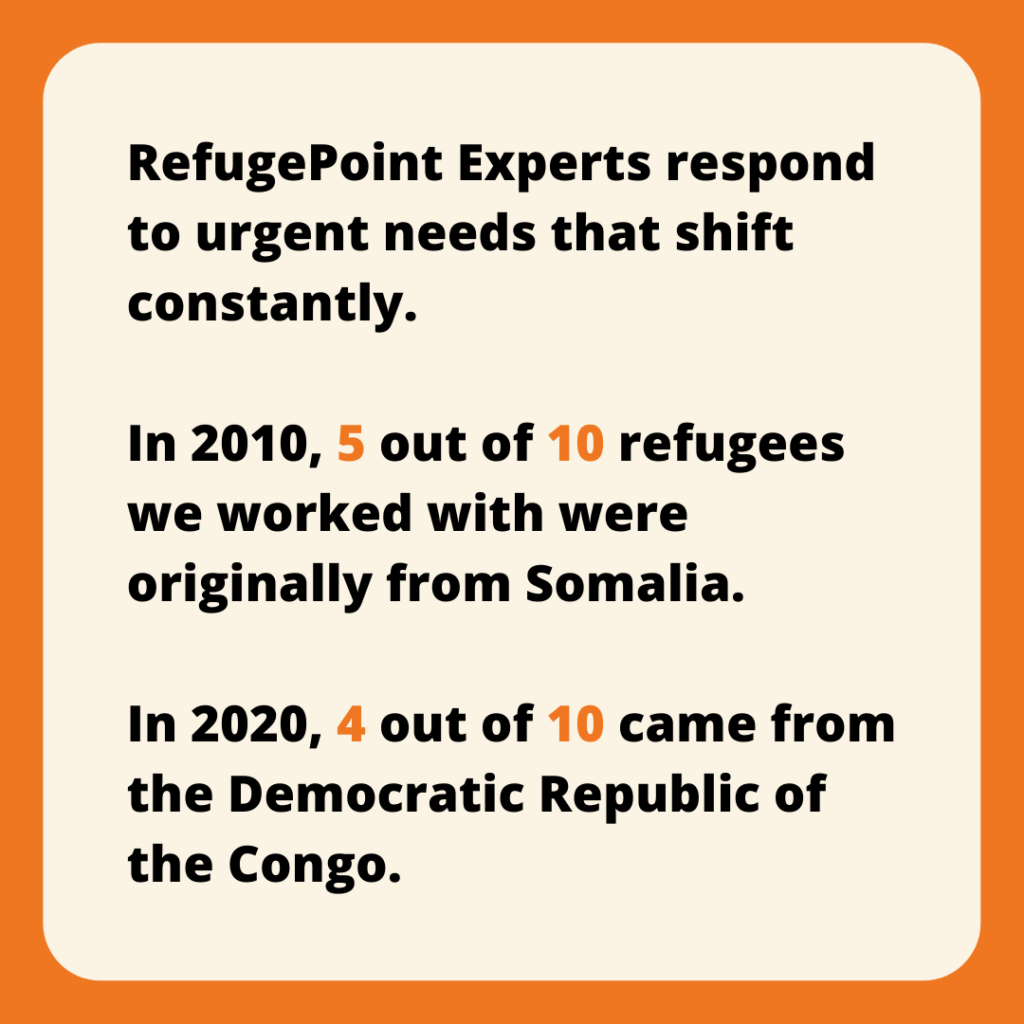
Since those first exploratory missions in 2007, RefugePoint has kept track of the various types of casework we’ve done to assist refugees. In addition to submitting people’s cases for resettlement, Experts have also helped refugees access other pathways to safety, such as reuniting with their families, applying to study at universities in safe countries, accessing humanitarian flights, or seeking work opportunities abroad. Still others focus on supporting children, conducting assessments to support resettlement applications, and helping separated and unaccompanied children find the support they need. In each of these different initiatives, Experts have shared data summarizing their work so that we can keep track of the various activities as well as trainings they’ve conducted to strengthen the capacity of their coworkers and share knowledge and experience.
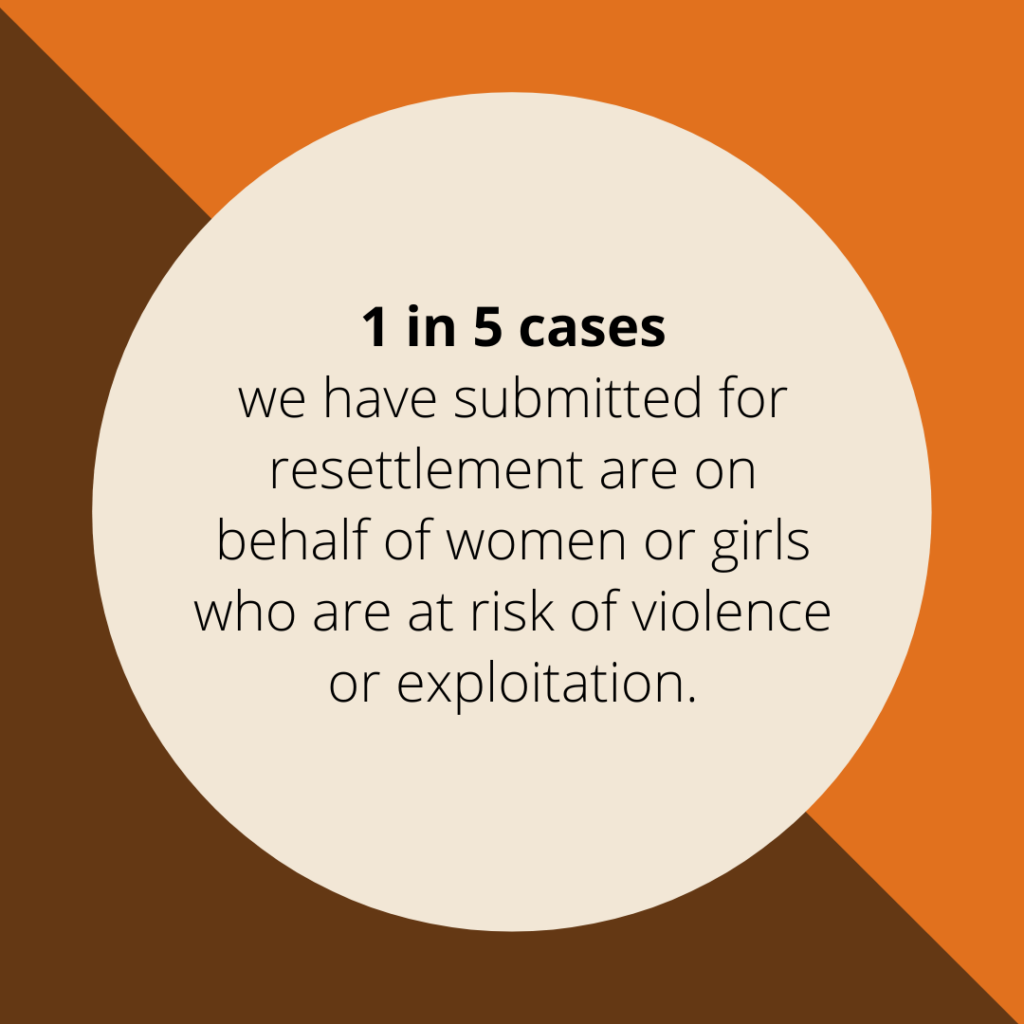
RefugePoint collects casework and narrative data from Experts for many reasons. Most importantly, we use it to measure our progress and impact. Observing trends in casework numbers over time can show how global events impact how we serve refugee communities and respond to evolving needs in an ever-changing context. As you can see in the chart below, our numbers show two particularly significant declines in the number of refugees we’ve supported: 2017 was the first year under the Trump administration in which the United States began drastically reducing the number of refugees it would accept, and the 2020 pandemic cut our casework in half. So far in 2021 (we only have data through the end of September, as I’m writing this), we’ve made up some considerable progress, but COVID-19 is still impacting our work.
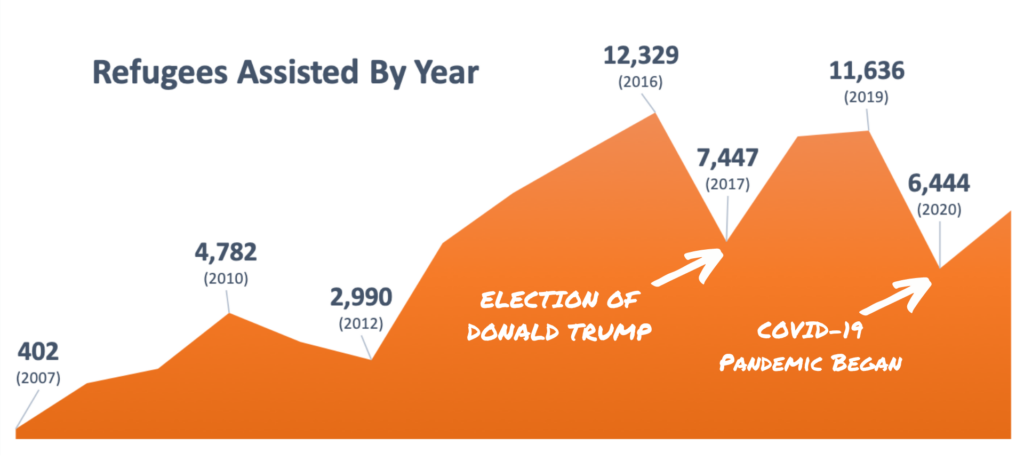
There are over 35,000 pieces of casework in our database. Each one represents an Expert sitting down with a refugee (or their story, if they are reviewing casework) and attempting to move them one step closer to a lasting solution. I don’t know each refugee’s story. In our organizational commitment to ensuring the safety of the refugees we work with, RefugePoint does not collect any data that could identify the refugees our Experts have worked with. When our Experts do occasionally share stories that we share publicly, we ensure anonymity when appropriate and always seek multiple levels of confirmation from our Experts and their offices before publication. Those 35,000 pieces of casework are anonymous. They can’t tell me the individual stories of the people we work with every day. However, the data we work with does tell important stories about the work we do.
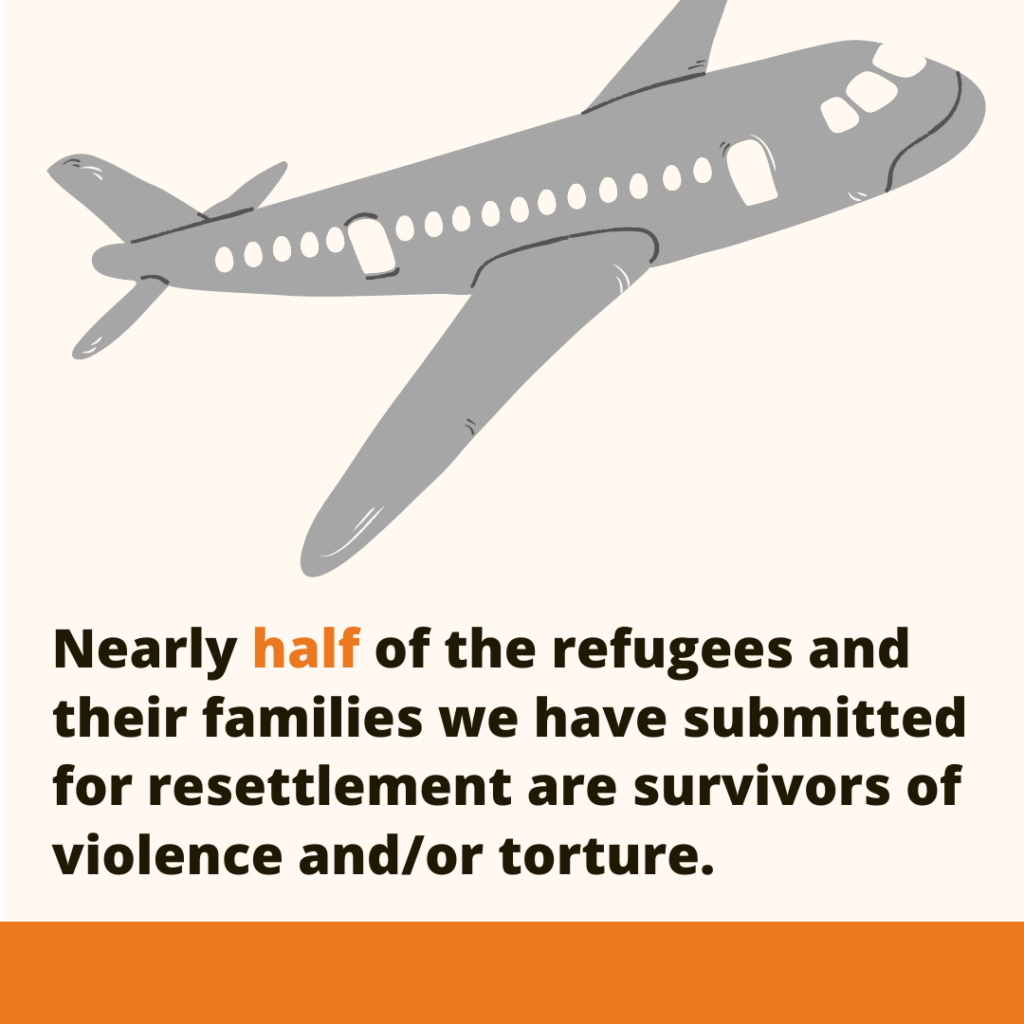
Data and numbers don’t have to be lifeless; in fact, they tell poignant truths about both the unique occurrences and shared experiences refugees may live through. What is absolutely necessary to remember about the data in our database, however, is that this is all based on work that our Experts have done. Refugees are at the center of everything we do at RefugePoint, and the stories we tell with this data give a snapshot of the steps RefugePoint Experts take alongside these refugees and their families as they seek a safe home. For example, since July 2020, RefugePoint has assisted over 100 refugees who have applied to study at universities in Canada, Germany, Italy, Kenya, Mexico, Spain, and Ukraine. This support can take many forms: our Experts have identified refugees in the communities they serve who are eligible for the special programs countries and universities have for refugees, provided technological support as they submitted their applications, or helped negotiate for a more comprehensive financial aid package.
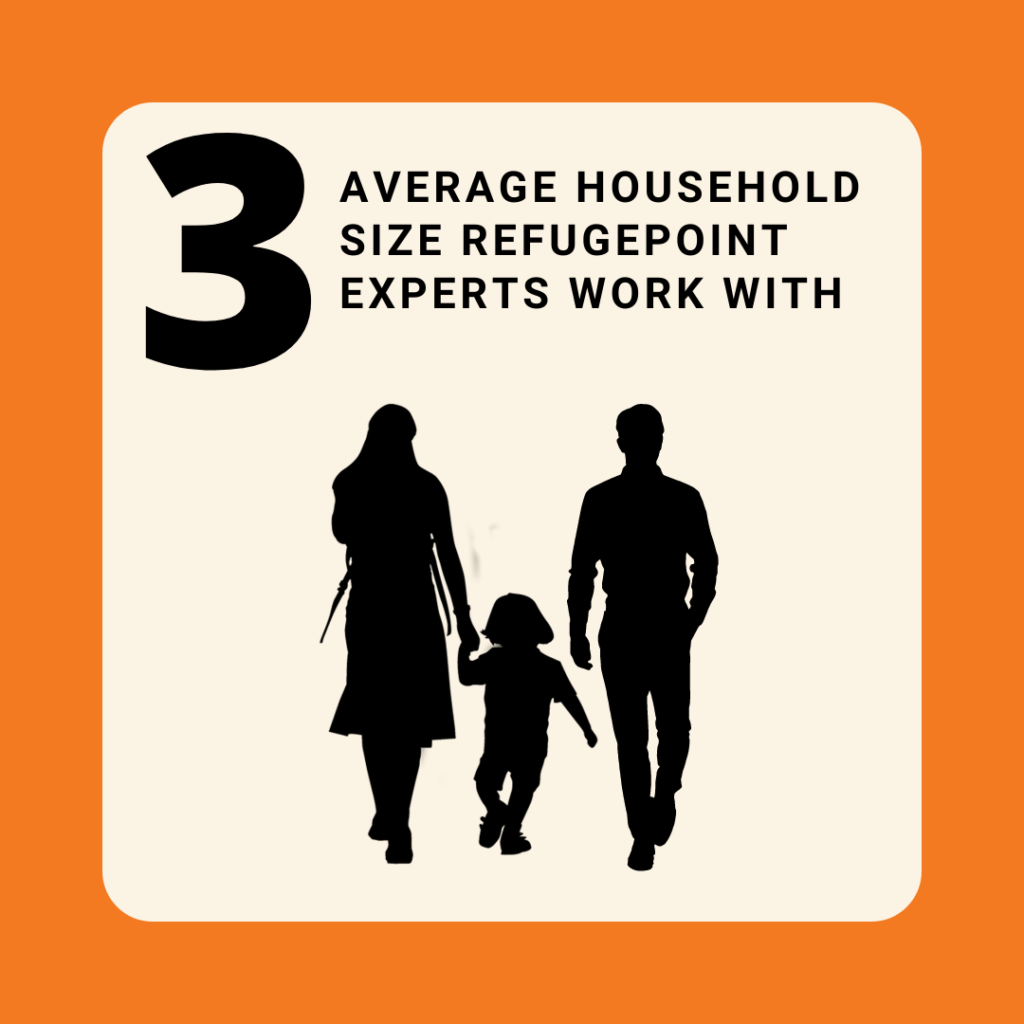
Our database features casework from 156 different Experts who have worked with us for terms as short as a few months to over a decade. There are also instances where multiple Experts will collaborate on the same case. One in particular starts to read like a story. One of our Child Protection Experts reviewed an initial assessment for a group of five children. She conducted a more formal assessment herself so that a RefugePoint Resettlement Expert could write a resettlement application for those siblings. Not long after, one of our first Family Reunification Experts provided legal support necessary to help reunite those children with their family. This is a clear example of how much work it can take to find a safe home. Stories like these are an exception. Many others aren’t as lucky. Less than 1% of refugees in need of resettlement are actually able to access it each year (UNHCR). But reunions and new beginnings do happen, and this data illuminates the work RefugePoint does to assist refugees along the way.
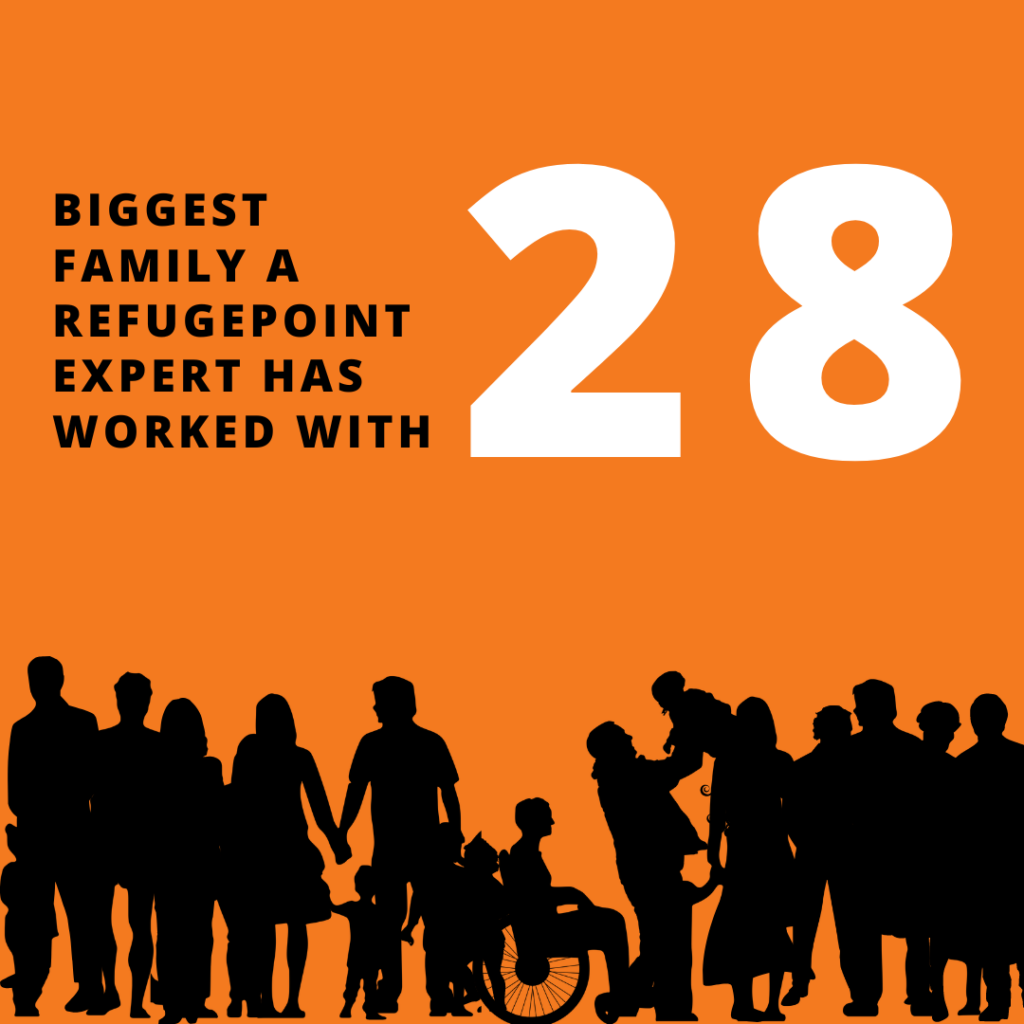
Our longest-serving Expert, who started working in RefugePoint’s Urban Refugee Protection Program in Nairobi before transitioning to the UNHCR Collaboration Project in 2011, has done child protection and family reunification work in Kenya, Uganda, Malawi, Rwanda, Zambia, Mozambique, Iraq, Turkey, and Ethiopia. According to our database, she has completed casework for 1,856 children in that time. If we count their families, she has made a lasting impact on the lives of 5,609 people.
When we take those numbers and combine them with the narrative reports Experts submit, their own words add another human dimension to the numbers we collect. As a Program Officer living and working thousands of miles away from the places where our Experts are interviewing refugees, this data gives me a chance to more fully understand and connect to the work we do. When we present data that demonstrates positive impact and share stories like these, remote staff, donors, and readers like you have a chance to see beyond the constant stream of tragic news stories. They remind us that those individual actions—interviews, assessment reviews, legal support—are life-altering for the thousands of people we work with every year. They demand that we continue working to make resettlement and other pathways to safety accessible to more people who need it. And they give us a chance to appreciate the valuable work Experts are doing.

Like any story, our casework database began with an idea. In 2007, RefugePoint was two years old and only supporting urban refugees in Nairobi, Kenya. Part of that program included referring refugees who we worked with for resettlement to a safe country, and we began to wonder if we could provide support on resettlement cases outside of Nairobi. What RefugePoint now calls the UNHCR Collaboration Project started when we sent a pair of Resettlement Experts to Dadaab, a refugee camp about 300 miles northeast of Nairobi, to interview refugees and submit their cases for resettlement. Experts are RefugePoint employees who work with the United Nations High Commissioner for Refugees (UNHCR) to provide support in refugee resettlement, child protection, family reunification, or building other pathways. Fourteen years later, RefugePoint has sent Experts to 49 different countries to support more than 100,000 refugees to access resettlement and other pathways to safety.

Since those first exploratory missions in 2007, RefugePoint has kept track of the various types of casework we’ve done to assist refugees. In addition to submitting people’s cases for resettlement, Experts have also helped refugees access other pathways to safety, such as reuniting with their families, applying to study at universities in safe countries, accessing humanitarian flights, or seeking work opportunities abroad. Still others focus on supporting children, conducting assessments to support resettlement applications, and helping separated and unaccompanied children find the support they need. In each of these different initiatives, Experts have shared data summarizing their work so that we can keep track of the various activities as well as trainings they’ve conducted to strengthen the capacity of their coworkers and share knowledge and experience.

RefugePoint collects casework and narrative data from Experts for many reasons. Most importantly, we use it to measure our progress and impact. Observing trends in casework numbers over time can show how global events impact how we serve refugee communities and respond to evolving needs in an ever-changing context. As you can see in the chart below, our numbers show two particularly significant declines in the number of refugees we’ve supported: 2017 was the first year under the Trump administration in which the United States began drastically reducing the number of refugees it would accept, and the 2020 pandemic cut our casework in half. So far in 2021 (we only have data through the end of September, as I’m writing this), we’ve made up some considerable progress, but COVID-19 is still impacting our work.

There are over 35,000 pieces of casework in our database. Each one represents an Expert sitting down with a refugee (or their story, if they are reviewing casework) and attempting to move them one step closer to a lasting solution. I don’t know each refugee’s story. In our organizational commitment to ensuring the safety of the refugees we work with, RefugePoint does not collect any data that could identify the refugees our Experts have worked with. When our Experts do occasionally share stories that we share publicly, we ensure anonymity when appropriate and always seek multiple levels of confirmation from our Experts and their offices before publication. Those 35,000 pieces of casework are anonymous. They can’t tell me the individual stories of the people we work with every day. However, the data we work with does tell important stories about the work we do.

Data and numbers don’t have to be lifeless; in fact, they tell poignant truths about both the unique occurrences and shared experiences refugees may live through. What is absolutely necessary to remember about the data in our database, however, is that this is all based on work that our Experts have done. Refugees are at the center of everything we do at RefugePoint, and the stories we tell with this data give a snapshot of the steps RefugePoint Experts take alongside these refugees and their families as they seek a safe home. For example, since July 2020, RefugePoint has assisted over 100 refugees who have applied to study at universities in Canada, Germany, Italy, Kenya, Mexico, Spain, and Ukraine. This support can take many forms: our Experts have identified refugees in the communities they serve who are eligible for the special programs countries and universities have for refugees, provided technological support as they submitted their applications, or helped negotiate for a more comprehensive financial aid package.

Our database features casework from 156 different Experts who have worked with us for terms as short as a few months to over a decade. There are also instances where multiple Experts will collaborate on the same case. One in particular starts to read like a story. One of our Child Protection Experts reviewed an initial assessment for a group of five children. She conducted a more formal assessment herself so that a RefugePoint Resettlement Expert could write a resettlement application for those siblings. Not long after, one of our first Family Reunification Experts provided legal support necessary to help reunite those children with their family. This is a clear example of how much work it can take to find a safe home. Stories like these are an exception. Many others aren’t as lucky. Less than 1% of refugees in need of resettlement are actually able to access it each year (UNHCR). But reunions and new beginnings do happen, and this data illuminates the work RefugePoint does to assist refugees along the way.

Our longest-serving Expert, who started working in RefugePoint’s Urban Refugee Protection Program in Nairobi before transitioning to the UNHCR Collaboration Project in 2011, has done child protection and family reunification work in Kenya, Uganda, Malawi, Rwanda, Zambia, Mozambique, Iraq, Turkey, and Ethiopia. According to our database, she has completed casework for 1,856 children in that time. If we count their families, she has made a lasting impact on the lives of 5,609 people.
When we take those numbers and combine them with the narrative reports Experts submit, their own words add another human dimension to the numbers we collect. As a Program Officer living and working thousands of miles away from the places where our Experts are interviewing refugees, this data gives me a chance to more fully understand and connect to the work we do. When we present data that demonstrates positive impact and share stories like these, remote staff, donors, and readers like you have a chance to see beyond the constant stream of tragic news stories. They remind us that those individual actions—interviews, assessment reviews, legal support—are life-altering for the thousands of people we work with every year. They demand that we continue working to make resettlement and other pathways to safety accessible to more people who need it. And they give us a chance to appreciate the valuable work Experts are doing.
